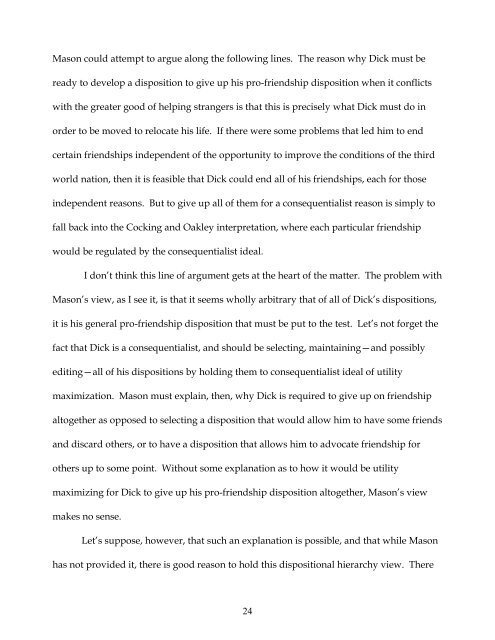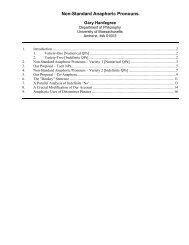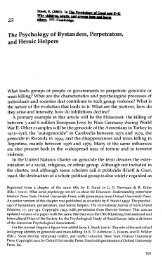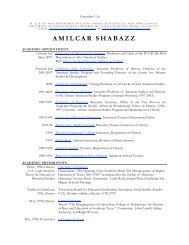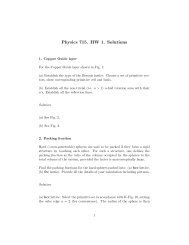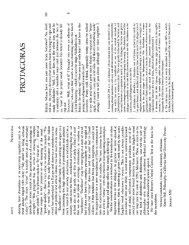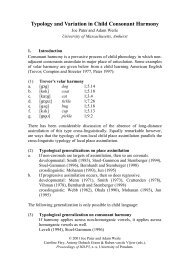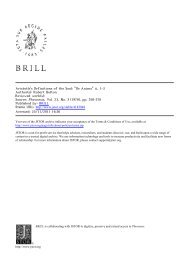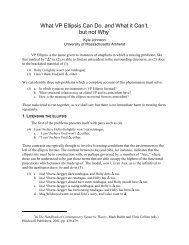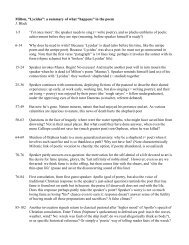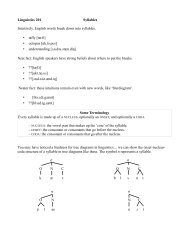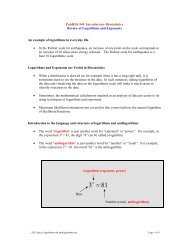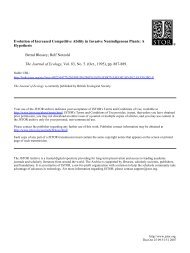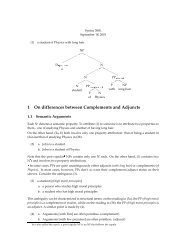1 Confessions of a Moral Schizophrenic* By Jayme Johnson I ...
1 Confessions of a Moral Schizophrenic* By Jayme Johnson I ...
1 Confessions of a Moral Schizophrenic* By Jayme Johnson I ...
Create successful ePaper yourself
Turn your PDF publications into a flip-book with our unique Google optimized e-Paper software.
Mason could attempt to argue along the following lines. The reason why Dick must be<br />
ready to develop a disposition to give up his pro-friendship disposition when it conflicts<br />
with the greater good <strong>of</strong> helping strangers is that this is precisely what Dick must do in<br />
order to be moved to relocate his life. If there were some problems that led him to end<br />
certain friendships independent <strong>of</strong> the opportunity to improve the conditions <strong>of</strong> the third<br />
world nation, then it is feasible that Dick could end all <strong>of</strong> his friendships, each for those<br />
independent reasons. But to give up all <strong>of</strong> them for a consequentialist reason is simply to<br />
fall back into the Cocking and Oakley interpretation, where each particular friendship<br />
would be regulated by the consequentialist ideal.<br />
I don’t think this line <strong>of</strong> argument gets at the heart <strong>of</strong> the matter. The problem with<br />
Mason’s view, as I see it, is that it seems wholly arbitrary that <strong>of</strong> all <strong>of</strong> Dick’s dispositions,<br />
it is his general pro-friendship disposition that must be put to the test. Let’s not forget the<br />
fact that Dick is a consequentialist, and should be selecting, maintaining—and possibly<br />
editing—all <strong>of</strong> his dispositions by holding them to consequentialist ideal <strong>of</strong> utility<br />
maximization. Mason must explain, then, why Dick is required to give up on friendship<br />
altogether as opposed to selecting a disposition that would allow him to have some friends<br />
and discard others, or to have a disposition that allows him to advocate friendship for<br />
others up to some point. Without some explanation as to how it would be utility<br />
maximizing for Dick to give up his pro-friendship disposition altogether, Mason’s view<br />
makes no sense.<br />
Let’s suppose, however, that such an explanation is possible, and that while Mason<br />
has not provided it, there is good reason to hold this dispositional hierarchy view. There<br />
24


